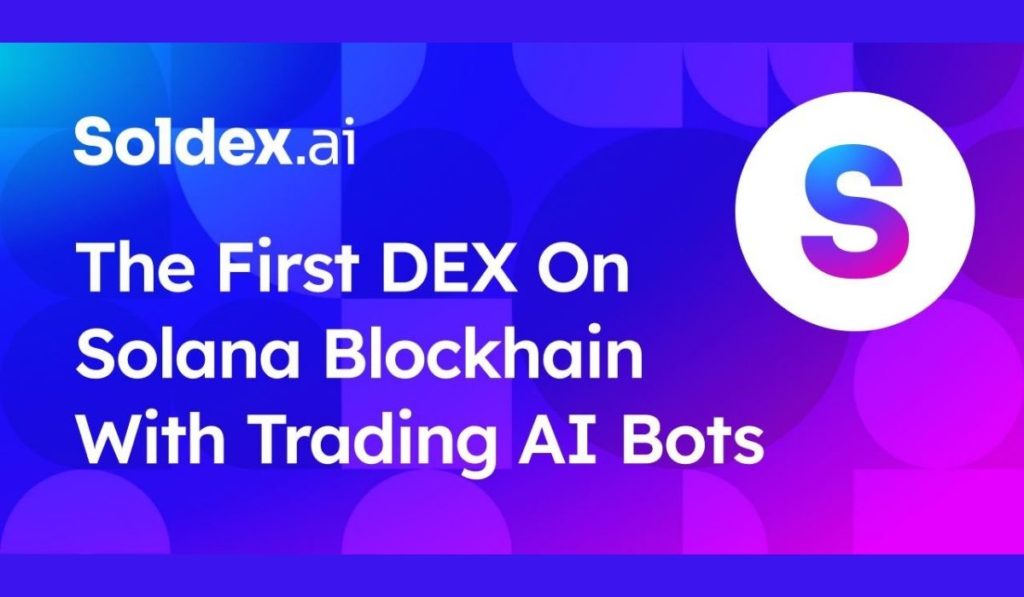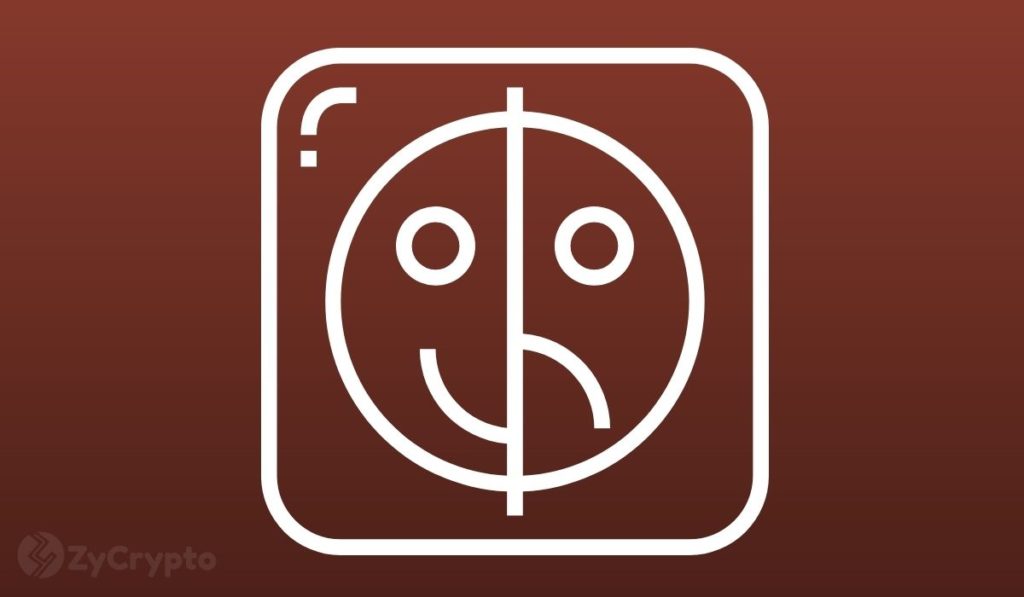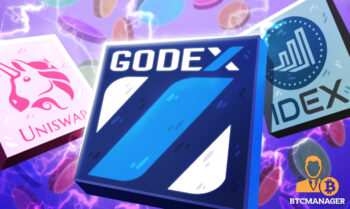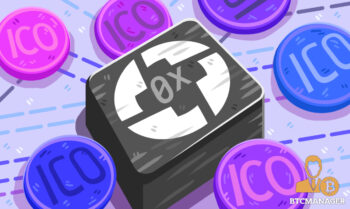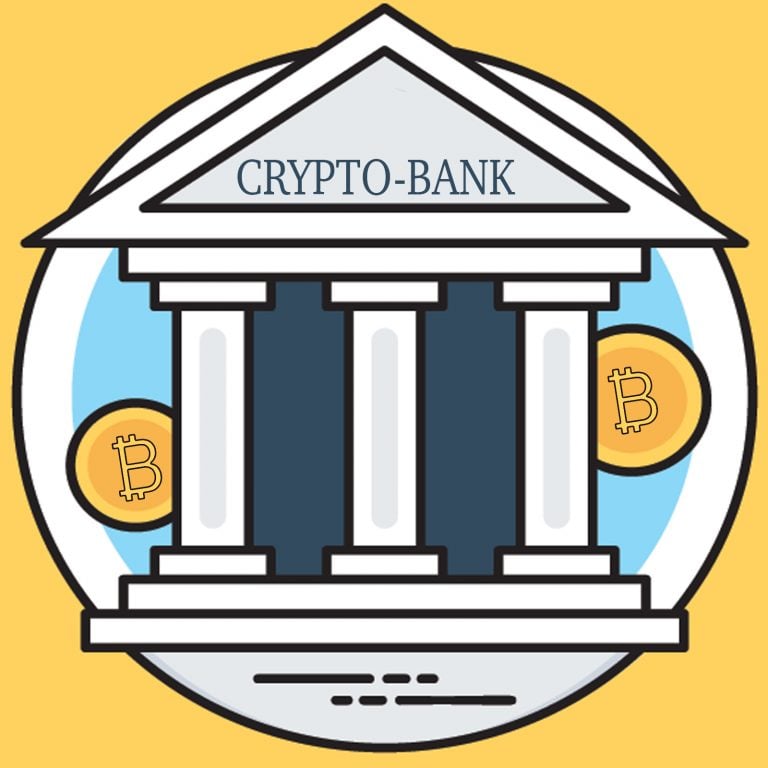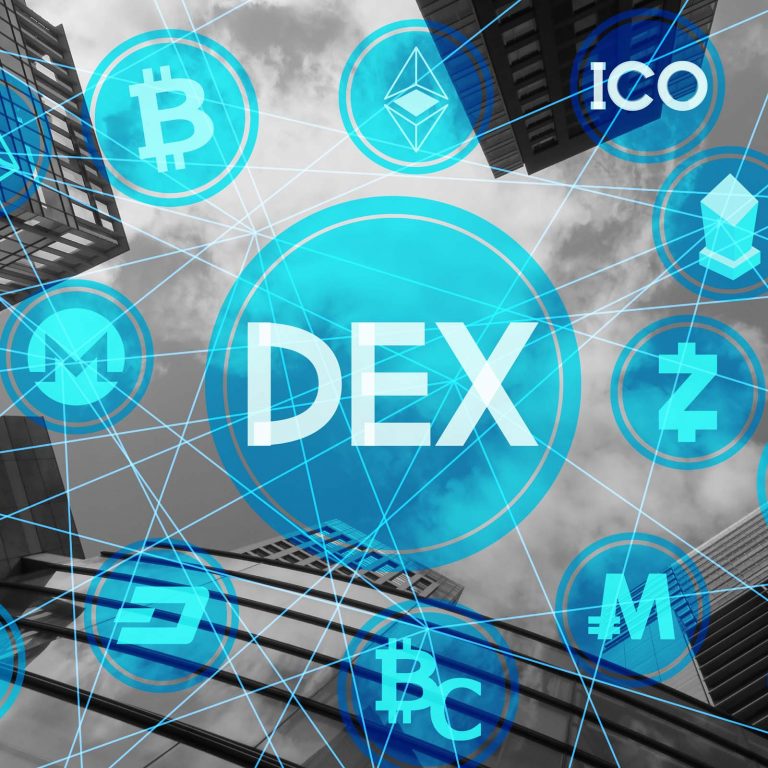![Top 9 Best Decentralized Cryptocurrency Exchanges [2022 Edition]](http://captainaltcoin.com/wp-content/uploads/2018/01/image003-2.gif)
2021-12-3 23:54 |
One of the most important cryptocurrency innovations of the last few years has gone largely unnoticed. It’s a simple yet powerful equation that facilitated decentralized exchanges and disrupted the age-old, and very dodgy business of market-making.
The whole ethos of permissionless, decentralized networks is to remove the middleman – the banks, agents, dealers, and rent-seekers who insert themselves in between two people trying to transact. Not only do they parasitize outrageous fees for their unnecessary services, but they also wield great power which is inevitably abused.
Take the instance of an equities exchange. Traditionally, there’s an order book with bids and offers from buyers and sellers. Who are all these traders adding liquidity to a market? Well, it turns out many of them are not investors interested in owning or selling part of a company. Most of the order book is filled with trades from some very dubious middlemen – the market makers. More of them later.
So how does the DEX fix all that? Well, it all started with that innocent-looking equation written on a scrap of paper… “a . b = k”
A Brief History of the DEXSo how do you run an exchange without market maker manipulation or corrupt investors influencing prices? You use an AMM (AutomaticMarket Maker). Liquidity is provided to the traded pairs through a liquidity pool, funded by anyone who has tokens to invest. That’s me, you, and ‘Joe bag of donuts,’ as well as institutional investors and crypto-whales. It works like this.
Take a trading pair, say AVAX/MATIC. Investors commit to a liquidity pool by buying an agreed proportion of both the underlying tokens. In this case ‘a’ = AVAX and ‘b’ = MATIC. ‘k,’ the total value of the pool will always remain the same. That’s all there is to it. To keep ‘k’ constant, we adjust ‘a’ and ‘b.’ Maths lesson over.
When someone buys MATIC with AVAX, MATIC is removed and AVAX is added to the pool. The values of the tokens are adjusted for ‘k’ to stay constant. This change in relative value is called slippage and is usually not an issue in a deep pool with millions of dollars of each token invested. Quite large trades will not affect the pool at all if there’s enough liquidity.
It’s all great until someone comes along and tries to buy too much, skewing the token prices out of range. Other issues occur when the underlying token prices change radically. If AVAX tanks while MATIC goes on an epic pump, the liquidity pool will have to be rebalanced to reflect their newE relative values in the pool. There’s a name for this hazard. It’s called impermanent loss.
It’s a ‘lost opportunity cost,’ as your dollar value stake in the pool will be the same, but the number of tokens you hold will decrease. As someone who lives mainly in crypto, not US dollars, the loss feels pretty permanent to me!
Both slippage and impermanent loss have been partially mitigated by advances on the original AMM algorithm. Be aware that the risks of an illiquid pool and volatile token prices still exist. Everything is fine when the markets are shooting up, but if we hit another crypto winter, for sure people will consolidate their portfolios. The first assets to be sold off will be the risky ones, like utility tokens staked in DeFi liquidity pools.
What Do I Want From a DEX?I merely require multiple Exotic tokens, guaranteed pseudonymity, great security, low gas fees, deep liquidity, and a great user experience. Oh, and the chance to invest my crypto for a substantial yield. That’s not much to ask, surely? In these early days of DeFi technology, it probably is a lot to ask. Most DEXs do most things well, but there are questions over hacks, rug-pulls, wallet interactions, and many other issues as yet not even thought of.
So which DEXs best fulfill the items on my wish list?
Before we move on, please note that the DEXes mentioned below do not support native Bitcoin. They do support wrapped Bitcoin or WBTC which is an ERC20 or BEP20 token. The DEXes we listed here are all on Ethereum, Polygon and BSC blockchains. New DEXes on Solana, Avax, Cardano etc are popping up and we will add them to the list as we go.If you want to use a crypto DEX that actually supports BTC, Bisq is the place to visit.
Bisq (aka BitSquare)
Bitsquare has an open source P2P system that allows anyone to sell Bitcoin in exchange for fiat currency (USD, EUR or Yen), and alternative cryptos. Bitsquare was founded by Manfred Karrer, and was rebranded to Bisq due to copyright issues.
It is a fully decentralized exchange that is available on Windows, Linux, and Mac platforms, but trade volumes are low.
It’s important to note that you are not required to provide sensitive information over the internet in order to get verified with Bitsquare (no name, email ID or verification).
To be a truly anonymous P2P network, Bisq uses Tor to effectively hide the user’s identity and also doesn’t hold Bitcoins or fiat currency on their servers or in their account. Another great thing about this exchange is that every aspect is decentralized from placing the order, to matching the order, to executing it.
Bisq currently supports 126 cryptocurrencies and the volume at the time of writing on this exchange is still relatively low but trends in the right direction.
Use Bisq Now Best decentralized exchange 2022 – List
Below, we take a look at the most popular DEXs that have been around for a while, and also some of the newer platforms. The DEX you choose might be dictated by the token you are trying to buy, but you should still do some basic risks assessment. There are links for all of the DEXs, but watch some Youtube tutorials and see what the good folks at Reddit have to say about each platform.
My pro-tip is to visit the Defi Pulse website for the lowdown on all reputable DeFi apps. You can see the rankings according to the amount of value locked up in each protocol. Click on a platform and there’s a comprehensive set of charts, statistics, audits, ecosystem links, and a brief summary of the project.
UniswapWhen Uniswap emerged back in 2018, DeFi was not on anyone’s radar. They’re one of the OGs of atomic swaps. It’s a straightforward AMM (Automatic Market Maker) that draws on global liquidity pools for ERC20 assets. You connect your DeFi wallet when prompted and you’re ready to swap your tokens. No personal details are required, just a standard DeFi wallet for ERC20 tokens. Right now, Uniswap is the most popular and probably best crypto dex by far.
Enter the ERC20 tokens you wish to swap, then set the slippage tolerance and the maximum time limit for the transaction. Once you hit swap, you authorize the transaction from your DeFi wallet and wait for it to complete.
To stake your tokens in a liquidity pool through Uniswap, click on the Pool button at the top right of the Uniswap application window. Select a pool in which to invest and select your chosen stake. Remember, you’ll need to provide the same dollar value for both of the tokens (or a predefined proportion of each). Authorize the transactions from your DeFi wallet and confirm on the Uniswap app. That’s it, you are now staking and earning rewards.
Liquidity providers are paid a portion of the 0.3% fees charged for token swaps, which is great when trading volume is high and the crypto market is surging. Again, be aware of the risk of impermanent loss as mentioned above.
Uniswap has several refreshing features, such as its hyper-minimal user interface. It didn’t initially offer a utility token like most other DEXs, so you could invest in liquidity pools without having to accumulate another potentially risky exchange token. There’s now UNI, which is a popular governance token to hold.
As with all good DEXs, it’s’ non-custodial, open-source, and doesn’t require the user to trust a middleman. Check Uniswap out on Defi Pulse.
SushiswapOnce regarded as a meme, the Sushiswap DEX is a direct clone of the original Uniswap AMM. Of course, there’s the obligatory governance token, SUSHI, but they have a different approach to earning rewards from the transaction fees. Sushiswap have also worked on their user interface, distinguishing itself entirely from the original, Uniswap.
Sushiswap’s stated aim was to make decision-making more democratic and to distribute liquidity pool staking rewards more equitably. Both Uniswap and Sushiswap charge 0.3% for their swaps, but Sushi payout a portion of this to current SUSHI holders with more SUSHI tokens. The plan was to enable early adopters to become major stakeholders rather than whales buying into the project at very little risk, once it was established.
In the early stages, Sushiswap cleverly enticed Uniswap liquidity providers to join the project with enhanced rewards. This ‘Vampire Attack’ worked and within weeks, Sushiswap was up and running. Its rapid rise to success is all the more incredible as it’s a company of which we knew virtually nothing of the founders. 0xMaki and Chef Nomi, (not their real names) pulled off something special with Sushiswap in the DeFi world.
Che Nomi very soon sold all the development funds for about 17 million dollars and bailed out. That’s what happens when the tokenomics are bad and the founders’ identities are unknown. It amazes me that Sushiswap ever got started, then managed to be successful, and remains as a ‘thing’ even today!
But whatever scandals there were, it seems to have worked. Sushiswap sits at #9 on the charts with nearly four billion dollars locked up in and providing liquidity. SUSHI token has become a favorite altcoin as its fortunes are directly tied to the DEX. Again, the ERC20 compatible DEX is great for swapping tokens, until you have to pay Ethereum gas fees.
PancakeSwapFor a brief period, PancakeSwap peaked as the largest DEX of them all. Since then it has fallen away slightly but remains a significant player on the Binance Smart Chain. PancakeSwap is yet another clone of Uniswap, which explains the almost identical application. So what’s PancakeSwap’s killer app?
They offer more interesting yield farming services where you can stake your BEP20 (Binance Smart Chain) tokens in liquidity pools. You will be paid with their proprietary Cake token, which can also be staked on PancakeSwap. There’s even a Cake lottery and a limited NFT marketplace. Uniswap supports many more exotic tokens and trading pairs, so make sure your target cryptocurrencies are supported on PancakeSwap.
PancakeSwap’s Transaction fees for exchanging ERC20 tokens are around 0.2%. This is cheaper than Uniswap, but at these super-low levels, who cares? The elephant in the room is the Ethereum gas fee, paid in ETH. They make transactions of a few hundred dollars prohibitively expensive. PancakeSwap on the Binance smart chain has super-low fees and completion is wibithin seconds, rather than minutes or hours.
We are told to ignore this crippling Ethereum gas fee situation as Ethereum 2.0 will resolve everything. I hope so! In the meantime, Binance is a far more practical blockchain for most people, and PancakeSwap is a proven BEP20 DEX.
Visit Binance Now
CurveCurve FInance is yet another AMM that uses liquidity pools to facilitate token swaps between stablecoins and dollar-pegged crypto assets. There are all the standard features plus a few more options under the advanced tab, including optimization for order routing and fees. Again, all transactions are authorized through your DeFi wallet.
Curve’s edge is reduced slippage via their Bonding Curves innovation, one of the many improvements on the original AMM equation. Curve sits at number four on the Defi Pulse charts with 11.5 billion dollars locked up in their staking pools. Barely a year old, Curve is the go-to platform for swapping stablecoins. It’s interesting to note that the risk of impermanent loss is negligible as stablecoins tend to vary very little in price over time.
BalancerThere’s much more to Balancer than token swaps. They offer automated portfolio management on top of their liquidity management and price sensing tools. The impermanent loss issue is different with Balancer as you may invest any tokens in any proportions to support the liquidity pools. This is great if you intend to stake your ERC20 tokens and earn rewards, while still being exposed to the underlying token’s price action.
Balancer is ranked number 11 on Defi Pulse, with 1.85 billion dollars in staked assets. The killer application is being able to create liquidity pools, either private or public, with any tokens, proportions, and fee structure that you like. There are around 2,000 public pools already, so you will likely find the perfect pool for your portfolio.
These bespoke liquidity pools enable a greater range of trading and yield-farming options. This is all achieved by some devilishly clever mathematics, improving on the original AMM equation. There are some terms and conditions, so do your research before you enter a staking pool.
Other decentralized exchanges worth mentioning:List:
IDEX – https://idex.market/
ForkDelta – https://forkdelta.github.io
Etherdelta – https://etherdelta.com
RadarRelay – https://radarrelay.com
Kyber Network – https://kyber.network/
DDEX – https://ddex.io
ERCDex – https://ercdex.com
Dextroid – https://www.dextroid.io/
Paradex – https://paradex.io/
Bancor – https://www.bancor.network/
Dubiex – https://dubiex.com
Trade Airswap – https://trade.airswap.io/
Oasisdex – https://Oasisdex.com
EasyTrade – https://easytrade.io/
ConclusionIf you use DEXs, try to use a reputable platform. Make sure your DeFi wallet is sound, and never give up custody of your tokens to any DeFi platform. Remember that staking for rewards and supporting liquidity pools is risky. Be aware of the potential impermanent loss, and if the rewards seem too good to be true, they probably are.
Another ever-present risk is market crashes which can put pressure on liquidity pools and can make it uneconomical to exit a position gone wrong. When markets are depressed, I would be hesitant about staking my crypto in a DEX liquidity pool.
Thoughts on DeFi and the FutureWho knows what will happen between DeFi protocols and financial regulators. Are the temptations of regulatory protection too strong for a DeFi industry that desperately craves acceptance and respectability? Will more deeply principled personalities prevail and stay true to the permissionless, trustless, financial system that Satoshi envisaged?
There are still risks associated with DeFi platforms. There are even “Unknown unknowns,” which would be a tricky paragraph to write. But that’s the thing with personal sovereignty, the responsibility is awesome. So used are we to our bank looking after our cash to the tune of $250,000, that we don’t see the changes already happening.
Consider this. When Bonnie and Clyde held up the local bank, a customer wouldn’t wander in a week later to be told how sorry the bank was, but all their money had been stolen. Yet nowadays, when money is stolen from our high street bank accounts, it’s suddenly our money that was taken, not the bank’s money! So we already have most of the downside with none of the upsides of decentralized finance.
For a few, the trade-off is worth it and the benefits of DeFi outweigh the complications and risks. For most, this is not yet the case. It’s a niche market, but it’s growing exponentially. Bitcoin could have been nipped in the bud in its first three years, but the authorities didn’t consider it a viable threat. I’m not so sure government regulators will be fooled this time around. DeFi is a direct challenge to the banking system that the SEC is desperate to prop up. That’s what all the current S.E.C. vs Crypto hubbub is about.
You can see the dishonesty and corruption that DeFi is trying to eliminate. People are becoming wise to tech companies that treat customers like assets, and this is already a driving force behind DeFi adoption.
Recent articles have finally started to expose sharp practices by traditional exchanges and brokers to a point where Gery Gensler, head of the US S.E.C. has questioned the very legality of popular financial platforms, like Robinhood. The market makers and liquidity providers are not satisfied with the spread and trading fees. They have a deal with the exchange that for a fee, trades will be routed their way, in preference over the most efficient liquidity provider.
This PFOF system (Payment For Order Flow) was thought up by the infamous Bernie Madoff before he fleeced high net worth friends of their beloved capital. He went to jail forever, so perhaps others might follow? I doubt it. Robinhood is merely stealing from the poor. Madoff was stealing from the rich.
So which side are you on? I think there’s room for both to exist and a compromise will be reached. And if it isn’t? Well, DeFi is permissionless so… hold my beer!
The post Top 9 Best Decentralized Cryptocurrency Exchanges [2022 Edition] appeared first on CaptainAltcoin.
origin »Bitcoin price in Telegram @btc_price_every_hour
Decentralized Machine Learning (DML) íà Currencies.ru
|
|


